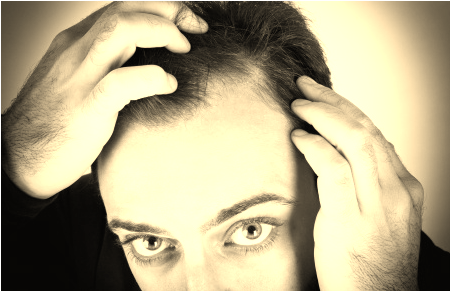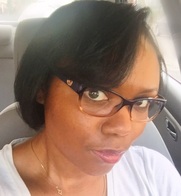Photo courtesy of 123RF
Shame has no favorites. She visits most of us for one cause or another. Sometimes those reasons can be from a traumatic experience such as molestation or rape. Other times, the reasons can stem from less devastating but equally emotionally taxing causes such as weight or financial struggles. My own experience with shame started as a child when boys teased me in elementary school because of my difficult-to-manage coarse hair. Through the years I covered the shame I had for my natural hair with chemicals and wigs and weaves. Anything to hide what lay beneath.
It was not until I had a stint with alopecia that my shame morphed into freedom. The worst that could have happened to me happened – I lost some of my hair. And guess what? I didn’t die. Hell, most people couldn’t even tell. But I knew that I was missing hair and that experience proved to be a wake-up call for me. I’m kinky and proud. And now I wear it out loud.
Oftentimes, when we think of hair and the shame that some of us may have experienced due to teasing or lack of representation in the media -- natural hair may be the craze now but I’m sure most of my 4C sisters know that’s not how it’s always been – we tend to think of black women. So imagine the collective pause taken when 47-year old, Caucasian sports announcer Joe Buck admitted in his memoir that he felt shame…about his hair. Let’s take a step back. As reported by The New York Daily News, in 2011, the announcer said he suffered a paralyzed vocal chord because of a virus. By his own admission, the virus was a lie; an embellishment he used to hide the truth. Joe Buck became a hair plug addict after he began losing his silky strands at the age of 24. Why did he lie? Because the truth was far too humiliating to admit.
While our attachment to hair can be easily dismissed as vanity, Joe Buck’s admission is yet another example of the deep emotional connection we have with our hair. For some of us, it is nothing more than an appendage to chop off, grow, color, or accessorize. For others of us, it is (or was) a source of humiliation, pain, and shame.
And shame knows no color.
It was not until I had a stint with alopecia that my shame morphed into freedom. The worst that could have happened to me happened – I lost some of my hair. And guess what? I didn’t die. Hell, most people couldn’t even tell. But I knew that I was missing hair and that experience proved to be a wake-up call for me. I’m kinky and proud. And now I wear it out loud.
Oftentimes, when we think of hair and the shame that some of us may have experienced due to teasing or lack of representation in the media -- natural hair may be the craze now but I’m sure most of my 4C sisters know that’s not how it’s always been – we tend to think of black women. So imagine the collective pause taken when 47-year old, Caucasian sports announcer Joe Buck admitted in his memoir that he felt shame…about his hair. Let’s take a step back. As reported by The New York Daily News, in 2011, the announcer said he suffered a paralyzed vocal chord because of a virus. By his own admission, the virus was a lie; an embellishment he used to hide the truth. Joe Buck became a hair plug addict after he began losing his silky strands at the age of 24. Why did he lie? Because the truth was far too humiliating to admit.
While our attachment to hair can be easily dismissed as vanity, Joe Buck’s admission is yet another example of the deep emotional connection we have with our hair. For some of us, it is nothing more than an appendage to chop off, grow, color, or accessorize. For others of us, it is (or was) a source of humiliation, pain, and shame.
And shame knows no color.




 RSS Feed
RSS Feed